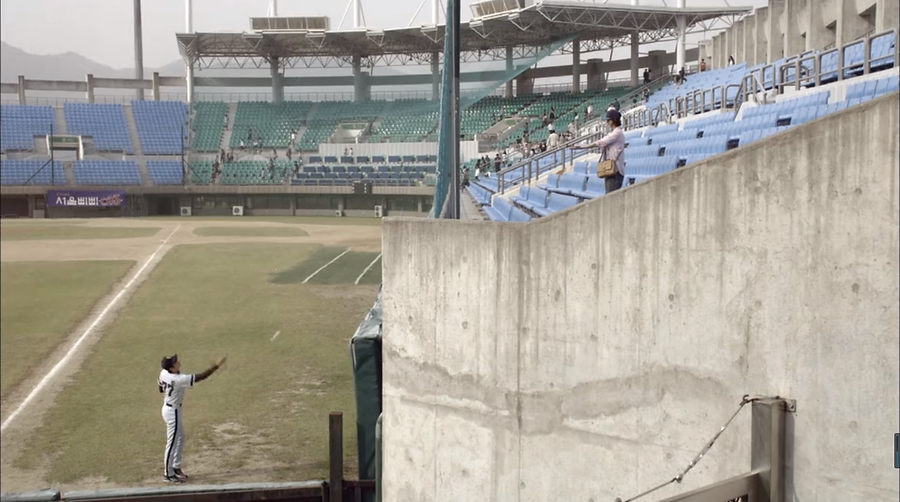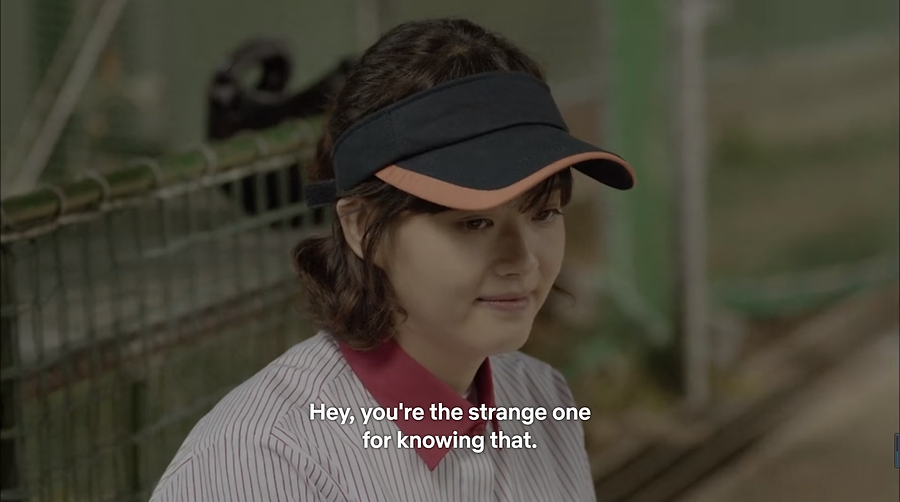
Episode 7: The Summer of That Year
By Winni Cao
In this episode of Reply 1994 started in the summer of 1994, Najeong helped Sseuregi with finding girls to attend the blind date for his seniors that are currently enrolled in the military. But instead of being drawn to any of the military boys, the girls were drawn to Sseuregi. After a big game, Chilbong gives the game-winning ball to Najeong. And the rest of the students from the boarding school went back to their hometown to visit their family.

The first Korean professional baseball league was first introduced on December 11th 1981. The public of Korea gave credit to Chun Doohwan, the president of that time period, for introducing the professional baseball league to the society (Kim 2008, 377). According to the class lecture, Chun introduced baseball to the society in 1980. “Dictatorship used culture” to ease the anger of the civilians in the city of Gwangju towards the government because of the massive slaughter that occurred (Kim 2008, 370). Thus, Chun introduced the 3S policy, including Sex, Screen, and Sports. The sports are being used “as part of a long-term policy goals and to win prestige abroad” (Ibid.). The dictatorship also introduced sports to “mollify and to distract the public from seeking legitimate human rights demands” (Ibid.). Therefore, the government encouraged the citizens to cheer for the sports team they like as a distraction.

In the current Korean society, many teenagers and youths, especially males like Najeong’s colleague at the burger store in the drama, are very into baseball. Chilbong responded to his team manager with “hey, you’re the strange one for knowing that. How many girls know what icing is” (EP 7, 7:30 - 7:50) when she commented on Najeong not knowing anything about baseball when she is the daughter of a famous baseball team coach.

The teenagers that are crazy fans of baseball, just like Yoojin being crazy over Seo Taeji, will be at negatively affected by the introduction of baseball to the Korean society. They would most likely go to all the games that their favourite team has, just like Najeong going to all of Sangmin’s basketball game. Taking up so much of their time would result in them having lesser time to study. This will be one of the reasons that their grades in school might drop. If this continues throughout their student life, it might even destroy their future. But luckily, none of the students’ grades were affected in the boarding house.

On the other hand, baseball has the potential of influencing students to be more involved in the sport. While the leagues are playing games, they are also promoting their team, especially the popular leagues, like the Seoul Twins in the drama. This kind of promotion will definitely result in teens being interested and starting to play baseball starting in their school team. If they are a great player, the chance of them being scouted by the popular leagues are high. Since baseball is a popular sport in Korea, it should always go on in the culture. One way of maintaining the culture is by promoting themselves and getting more people being involved and to play the sport.
Baseball, as a civic ritual, was first being used as a cover for the “ugly ambition of Korea’s political leaders” (Kim 2008, 382). Even though the first intention of Chun introducing baseball was mainly to cover up for the government’s doing, it has now developed into a successful culture.
Word count: 488
The following are some questions to think about:
-
What is your opinion on Chun introducing the 3s policy in the intention of distracting the citizens from the political issues?
-
What are other solutions for the government to ease the anger of the civilians?
-
What are some other positive and negative effects of baseball and it's connection to Korea in the current society?
Bibliography:
Kim, Bang-Chool. "Professional Baseball in Korea: Origins, Causes, Consequences and mplications." The International Journal of the History of Sport 25, no. 3 (2008): 370-385.